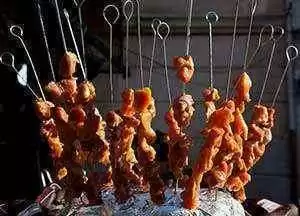This recipe comes to us from Jonathan Hammer. Follow standard beer brewing procedures with respect to sterilization and fermentation.
Celiac.com Sponsor (A12):
Recipe Per 1 gallon product:
1 pound buckwheat honey
1/3 ounce Challenger Hops
Yeast nutrient
Water to make 1 gallon
Ale Yeast
Reserve small amount of hops. Boil honey, water, and bulk of hops for 30 minutes. Add reserved hops and boil for another 5 minutes. Strain off the hops. Cool to room temperature. Add yeast nutrient as per package directions. Transfer wort to glass carboy. Prepare yeast as per package directions and add.
Fermentation can last up to 6 weeks.
When fermentation is complete, siphon into another glass carboy and store in a cool location for clarification (about 2 more weeks).
Siphon off clarified brew into a pot and add ¼ cup dissolved Dextrose (corn sugar primer) per gallon. Bottle immediately. Age for another 2 weeks or until tired of waiting and drink (hopefully not all at once, but celebration is appropriate at this point). Note that some additional clarification may take place; sediment will gather in the bottom of the bottles. Also, this stuff definitely improves with age.
I think the secret to getting a flavorful beer is in using buckwheat honey which is very dark and rich, and a fairly strong flavored hops. This is to my taste. Other combinations of honey and hops, however, will yield different tastes. I understand that there are about 300 different types of honey available and who knows how many different types of hops, so an infinite variety of different tasting honey-based ales can be made. Well, maybe not infinite, but at least there are enough combinations to keep someone drunk for a few hundred years trying to test them all.
Honey suppliers in the US may be found from the national honey boards web site at Open Original Shared Link. It is interesting to note that in northern Europe and England honey based ales were brewed well before knowledge of malting barley made its way north from the middle east. The reformation probably played a major role in England in the demise of mead and honey-ales (Protestants did not need as many candles as Catholics, less bees were kept, and consequently the price of honey soared). The availability of cheap barley malt and cheap imported French wines probably sealed the fate of mead and honey-ales, along with their numerous variations.
Aside from finding a gluten-free beer, I have enjoyed researching the history of beer, wine, and mead.





Recommended Comments
There are no comments to display.